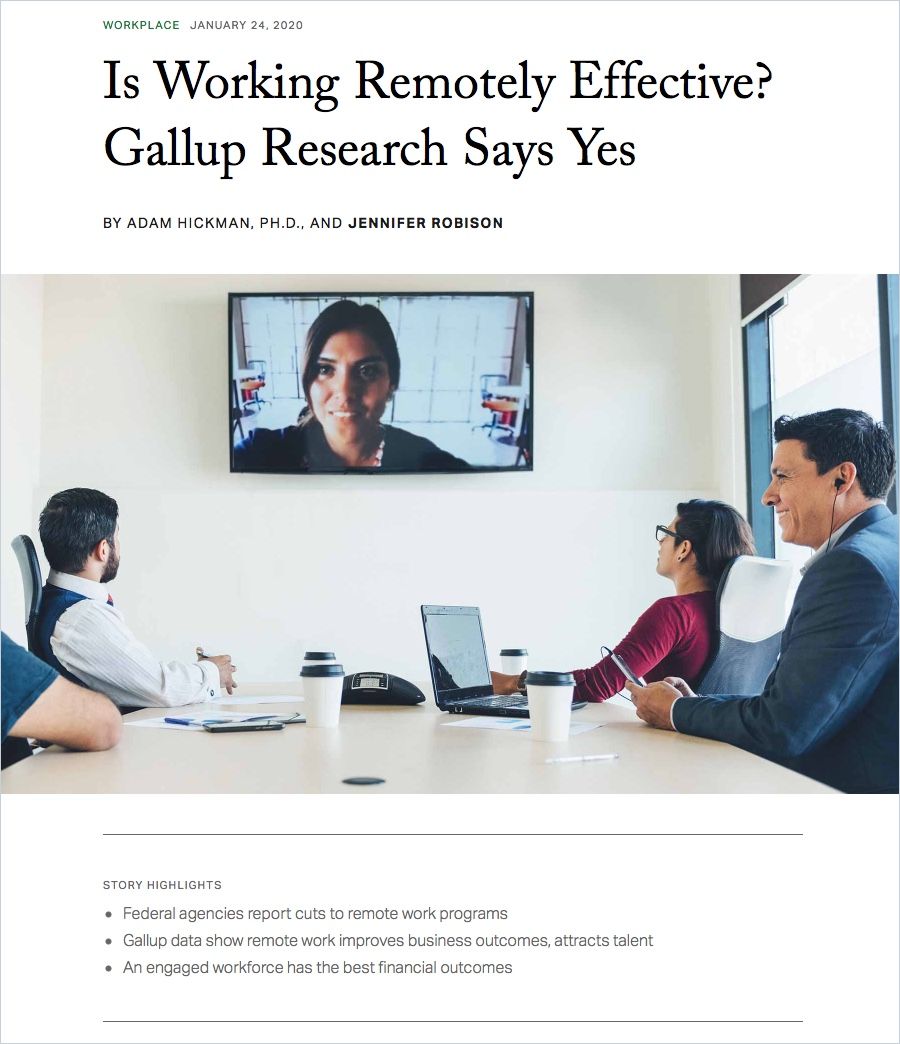The Future of Remote Work Is Here

The coronavirus has changed the world, and it will likely continue changing the way the world works for years to come. A recent survey of US workers conducted by getAbstract (PDF here) found that workers across industries actually don’t want to return to the office post-pandemic.
Citing flexibility, lack of commute, and proximity to family and friends, large numbers of the full-time workforce are hoping to retain their work-from-home set up even when it’s safe to conduct business face-to-face.
“The coronavirus pandemic left organizations
with little choice but to participate in
the world’s largest work-from-home
experiment – and now the world of work
may never be the same again.”
Download getAbstract’s National Survey here and find out why.
The survey found that of the 1,200 full-time employees working from home in the United States during the pandemic who responded to the survey, 61% of respondents reported they want to continue to work remotely, either from home or another “non-traditional” location – like a coffee shop or co-working space.
Only 32% of those surveyed said they’d prefer to return to a traditional office environment, and more than 45% say their employers are actively considering or open to moving to a remote model more permanently.
The coronavirus threat pushed employers and employees into the remote work space in record time, accelerating a digital transformation that’s been underway since the advent of the personal computer, but has historically been met with doubt and resistance.
In August of 2019, 3.4% of the total US workforce telecommuted, up from 2.9% in 2015. The survey found that, during the pandemic, a whopping 59% of employees are working from home.
Now that workers across the world have been thrust into home offices and cloud-based conference rooms, both employees and employers have discovered some significant benefits of this new landscape. This reinforces what many companies ahead of the remote learning curve have long known: working from home really does work better for some organizations.
In the survey, remote employees ranked three distinct benefits as among the most important:
1. Increased productivity and higher performance
Working from home has long been touted as a great way to reduce stress and boost productivity. This is particularly important during the coronavirus era, during which many people are experiencing increased anxiety and adverse effects on mental health.

Depending on individuals’ home situations, working remotely can often eliminate the distractions of office life. For those who are juggling competing priorities at home – namely parents of school-aged children – flexible work schedules are a great way to accommodate both the needs of parents and kids.

2. Eliminating time spent commuting
According to the US Census Bureau, the average one-way commute in the United States is 26.1 minutes, which translates to 4.35 hours a week and over 200 hours (nearly nine days) per year for full-time workers with 5-day-a-week jobs. Not only is this great for employees – it’s great for the environment. A recent study by Swiss company IQAir found that there has been a “drastic drop” in air pollution for almost all cities currently under lockdown orders when compared to a year earlier.
3. More time for family, friends and hobbies
Those 4.35 hours a week, and many other minutes regained throughout the day, means that the average worker is able to spend far more time with their families and friends, albeit often through a screen. Being sequestered inside means some people’s hobbies have been curtailed, but interest in other activities has surged. The companies behind pastimes like cooking, baking, reading, music, streaming services, and video games, have seen as much as a 70% increase in consumer spending during lockdown.
Interestingly, the survey found strong preferences for more remote work from both workers that had been working or not working remotely before the crisis.
For those workers that had never worked remotely prior to the pandemic, nearly 50% expressed a desire to keep working remotely. Moreover, among people who occasionally worked remotely previously, the survey found more than 80% want to work remotely more of the time.
The tale this survey tells is a success story amidst the devastation of the pandemic – people are uncovering the secrets of remote learning firsthand, setting them up for productivity in the short-term and readiness for the long-term shift that is likely to follow.
As people begin to think about returning to the new normal that awaits, the global workforce must continue to evolve in the wake of the coronavirus. While exact implications of these changes are still uncertain, this unprecedented shift will bring with it a societal transformation that rivals some of the world’s biggest turning points – the industrial revolution, globalization, and more women in the workforce to name a few. As employees and employers discover new ways to work together through the coronavirus crisis, they aren’t just creating opportunity. They are creating history.









